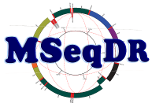Term ID: 31459
Name: Soft tissue neoplasm
Synonym:
Definition: A tumor (abnormal growth of tissue) that arises from the soft tissue. The most common types are lipomatous (fatty), vascular, smooth muscle, fibrous, and fibrohistiocytic neoplasms.
Comments:
Reference: HP:0031459
Genes and Diseases: Child Nodes: ........Diffuse leiomyomatosis (HP:0006756) ........Benign muscle neoplasm (HP:0031460) HP:0031461 Intramuscular Myxoma Sister Nodes: ..Hematological neoplasm (HP:0004377) ..Malignant mesothelioma (HP:0100001) ..Neoplasm of fatty tissue (HP:0200013) ..Neoplasm of head and neck (HP:0012288) ..Neoplasm of striated muscle (HP:0009728) ..Neoplasm of the breast (HP:0100013) ..Neoplasm of the ear (HP:0012780) ..Neoplasm of the endocrine system (HP:0100568) ..Neoplasm of the eye (HP:0100012) ..Neoplasm of the gastrointestinal tract (HP:0007378) ..Neoplasm of the genitourinary tract (HP:0007379) ..Neoplasm of the heart (HP:0100544) ..Neoplasm of the lip (HP:0100604) ..Neoplasm of the nail (HP:0100826) ..Neoplasm of the nervous system (HP:0004375) ..Neoplasm of the oral cavity (HP:0100649) ..Neoplasm of the pancreas (HP:0002894) ..Neoplasm of the respiratory system (HP:0100606) ..Neoplasm of the skeletal system (HP:0010622) ..Neoplasm of the skin (HP:0008069) ..Neoplasm of the thymus (HP:0100521) ..Retroperitoneal chemodectomas (HP:0006729) ..Vascular neoplasm (HP:0100742) Input HPO ID HPO term Distance Gene Gene id entrez HGNC ID DiseaseId DiseaseName Frequency Onset HGMD variants ClinVar variants HP:0031459 HP:0031459 Soft tissue neoplasm 0 APC CL E G H 324 583 ORPHA:99818 Turcot syndrome with polyposis HP:0040283 - Occasional 3179 HP:0031459 HP:0031459 Soft tissue neoplasm 0 COL4A5 CL E G H 1287 2207 OMIM:301050 Alport syndrome, X-linked 678 HP:0031459 HP:0031459 Soft tissue neoplasm 0 COL4A5 CL E G H 1287 2207 ORPHA:1018 X-linked Alport syndrome-diffuse leiomyomatosis 678 HP:0031459 HP:0031459 Soft tissue neoplasm 0 COL4A6 CL E G H 1288 2208 ORPHA:1018 X-linked Alport syndrome-diffuse leiomyomatosis 18 HP:0031459 HP:0031459 Soft tissue neoplasm 0 NAB2 CL E G H 4665 7627 ORPHA:2126 Solitary fibrous tumor/hemangiopericytoma HP:0040283 - Occasional HP:0031459 HP:0031459 Soft tissue neoplasm 0 NOTCH3 CL E G H 4854 7883 OMIM:615293 MYOFIBROMATOSIS, INFANTILE, 2; IMF2 144 HP:0031459 HP:0031459 Soft tissue neoplasm 0 PDGFRB CL E G H 5159 8804 OMIM:228550 Myofibromatosis, infantile, 1 28 HP:0031459 HP:0031459 Soft tissue neoplasm 0 STAT6 CL E G H 6778 11368 ORPHA:2126 Solitary fibrous tumor/hemangiopericytoma HP:0040283 - Occasional 1 HP:0031459 HP:0033987 Phosphaturic mesenchymal tumor 1 CL E G H HP:0031459 HP:0031460 Benign muscle neoplasm 1 CL E G H HP:0031459 HP:0006756 Diffuse leiomyomatosis 1 COL4A5 CL E G H 1287 2207 OMIM:301050 Alport syndrome, X-linked . 678 HP:0031459 HP:0006756 Diffuse leiomyomatosis 1 COL4A5 CL E G H 1287 2207 ORPHA:1018 X-linked Alport syndrome-diffuse leiomyomatosis HP:0040282 - Frequent 678 HP:0031459 HP:0006756 Diffuse leiomyomatosis 1 COL4A6 CL E G H 1288 2208 ORPHA:1018 X-linked Alport syndrome-diffuse leiomyomatosis HP:0040282 - Frequent 18 HP:0031459 HP:0020135 Myofibromatosis 1 NOTCH3 CL E G H 4854 7883 OMIM:615293 MYOFIBROMATOSIS, INFANTILE, 2; IMF2 144 HP:0031459 HP:0020135 Myofibromatosis 1 PDGFRB CL E G H 5159 8804 OMIM:228550 Myofibromatosis, infantile, 1 28 HP:0031459 HP:0031461 Intramuscular Myxoma 2 CL E G H
Human Phenotype Ontology(HPO) is developed by the Human Phenotype Ontology Consortium. The version used here is December 15 2022 release.




